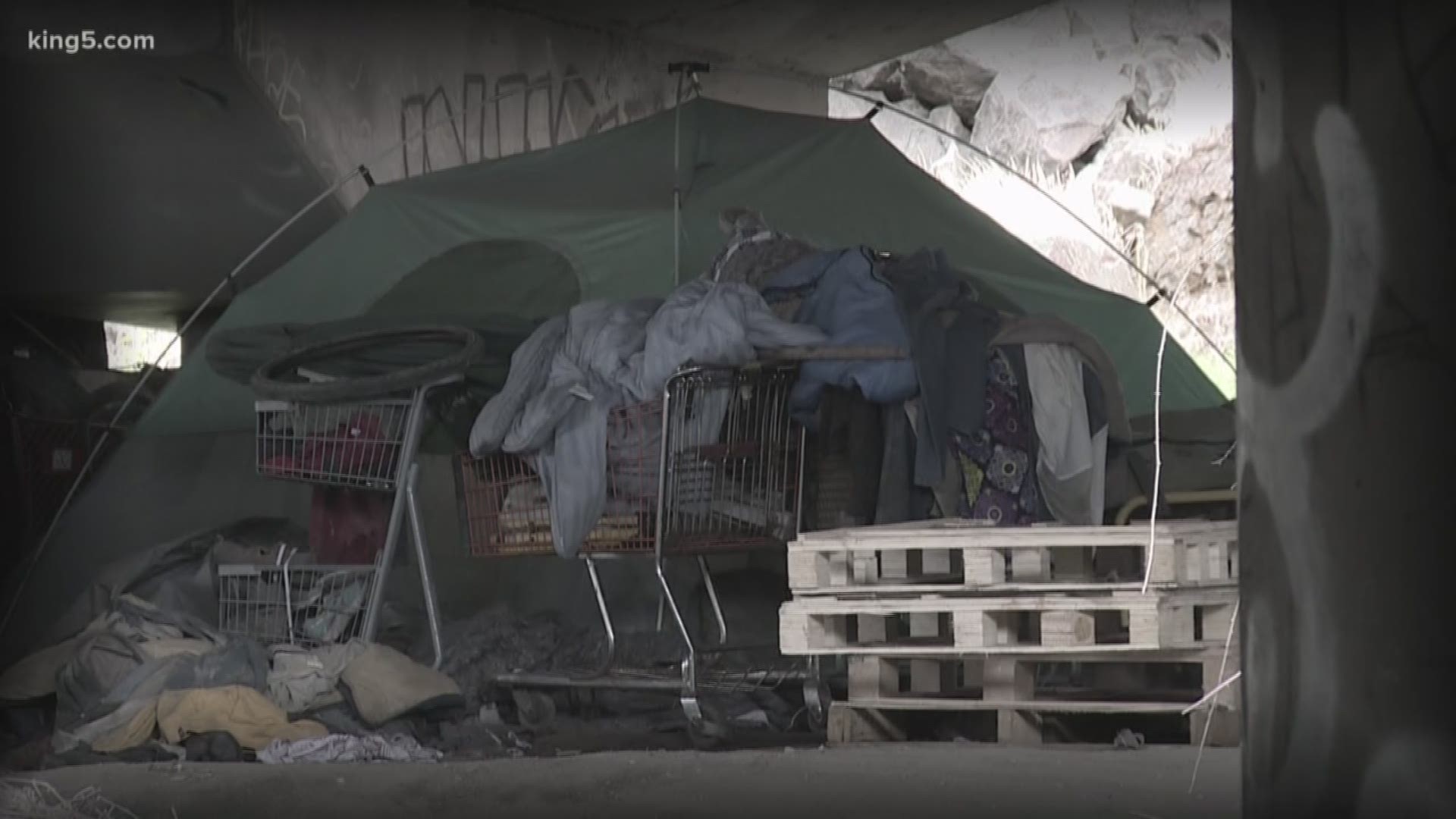It is a civil emergency that has lasted three years, and does not appear close to ending.
Back on November 2, 2015, then-Seattle Mayor Ed Murray and King County Executive Dow Constantine made the declaration as a way to free up more funding for homeless shelter and services. Millions of dollars have been spent, and yet the numbers of homeless continue to go up.
The head tax, which aimed to raise millions more, failed in spectacular fashion.
But that hasn't stopped Seattle City Council members from pitching new ideas in this budget cycle. Kshama Sawant wants a new tax on big business to build affordable housing. Teresa Mosqueda is looking for a line item to create a new $3 million tent. And Mike O'Brien is looking for some seed money for a pilot program for some modular housing which can be trucked in on trailers, and established in parking lots.
"We want to explore ideas like this," O'Brien said Friday, while standing, in of all places, suburban Kent.
That's where the ASPIRE Tiny Home, about 200 square feet in size, was built in the backyard of a home.
"Here's something that costs $50,000, or $75,000," he said. "It's totally decent housing, and folks could live there for a long time."
He's looking for about $300,000 to start the program, acknowledging that city codes and zoning may need to be changed in order to build the structures, which appear more durable and longer lasting than the structures that have been established in tiny house villages.
"This alone is going to alone solve, you know, 10,000 people are homeless, but if it can 2 percent or 5 percent of the problem, and something else can solve 2 to 5 percent of the problem, then we're getting to solutions. Pretty soon you get to solutions that are making significant differences," said O'Brien, while also acknowledging the complexity of it all. "If we don't address the rapidly rising rents, if we don't address the mental health crisis, if we don't have enough drug treatment opportunity to folks, we're going to have to deal with being overwhelmed in the crisis."
The Council will address O'Brien's tiny house idea, along with the others, at a budget hearing on Wednesday.

